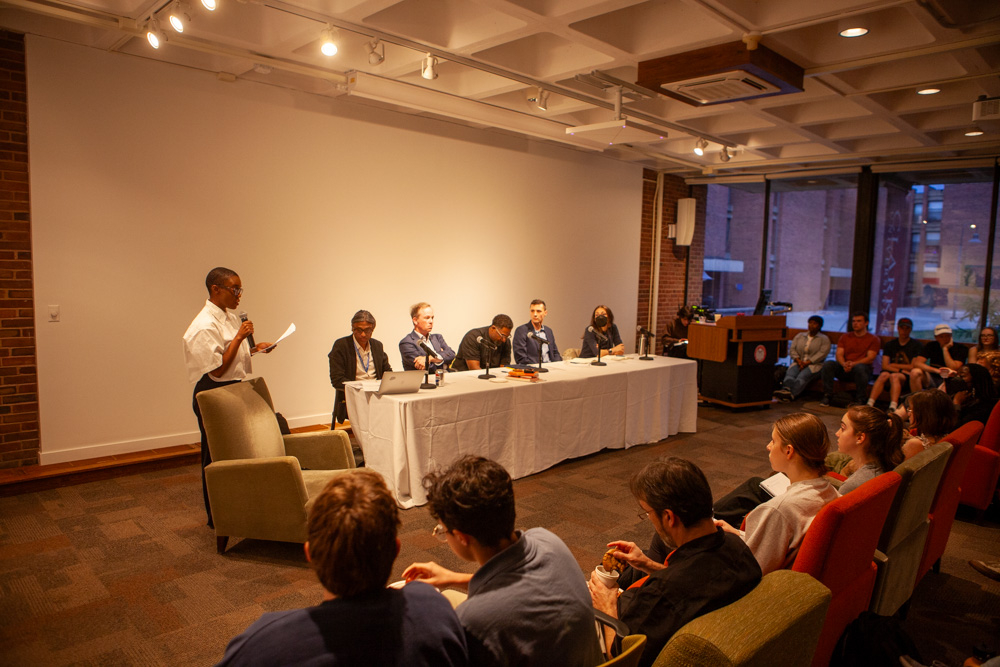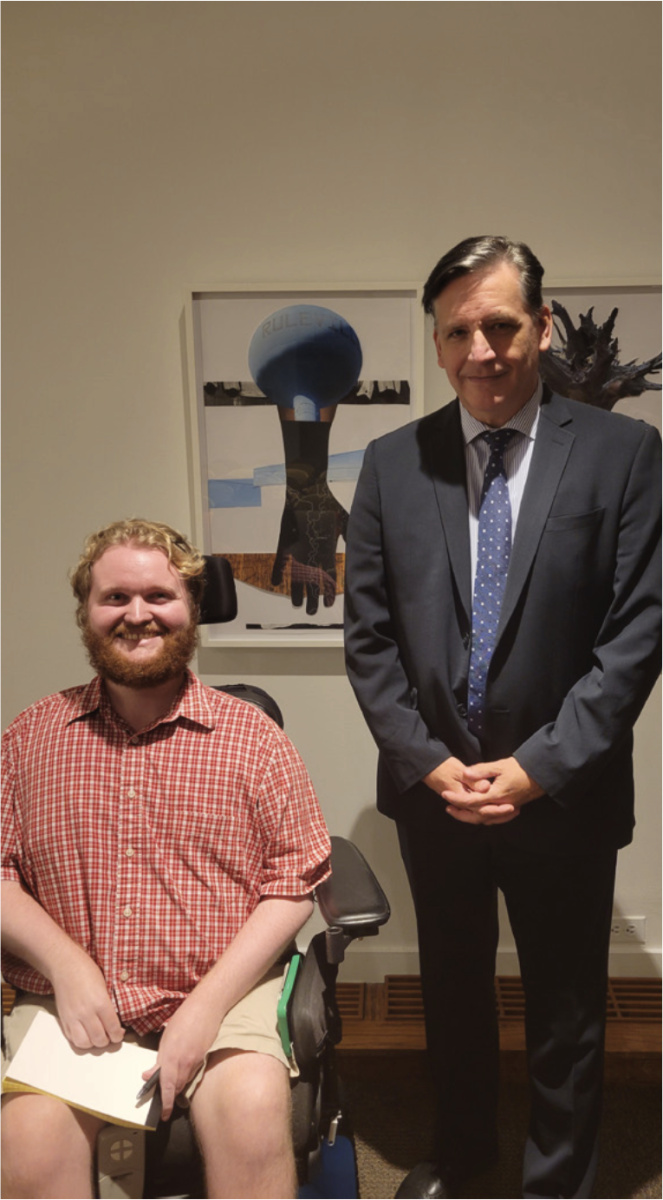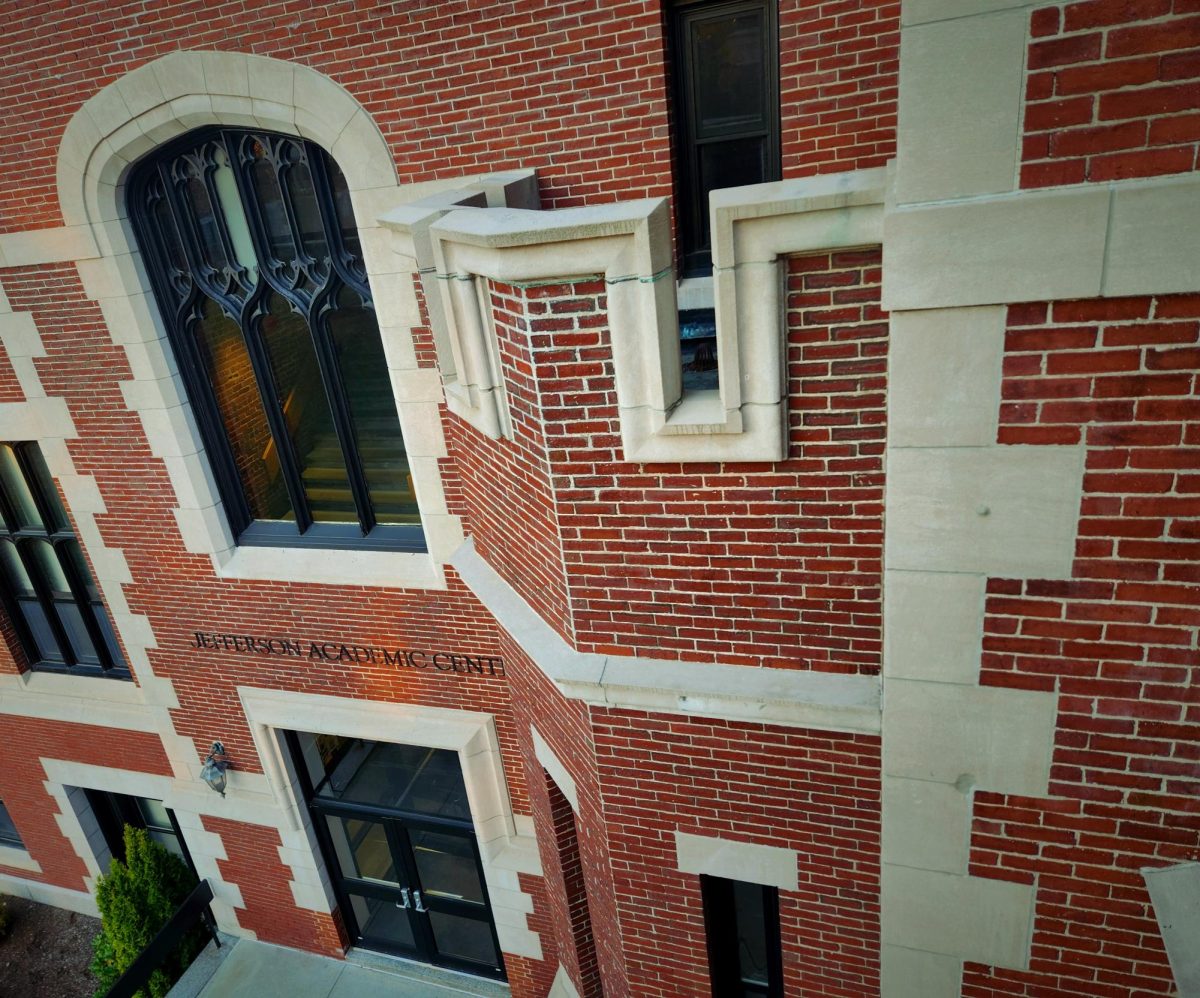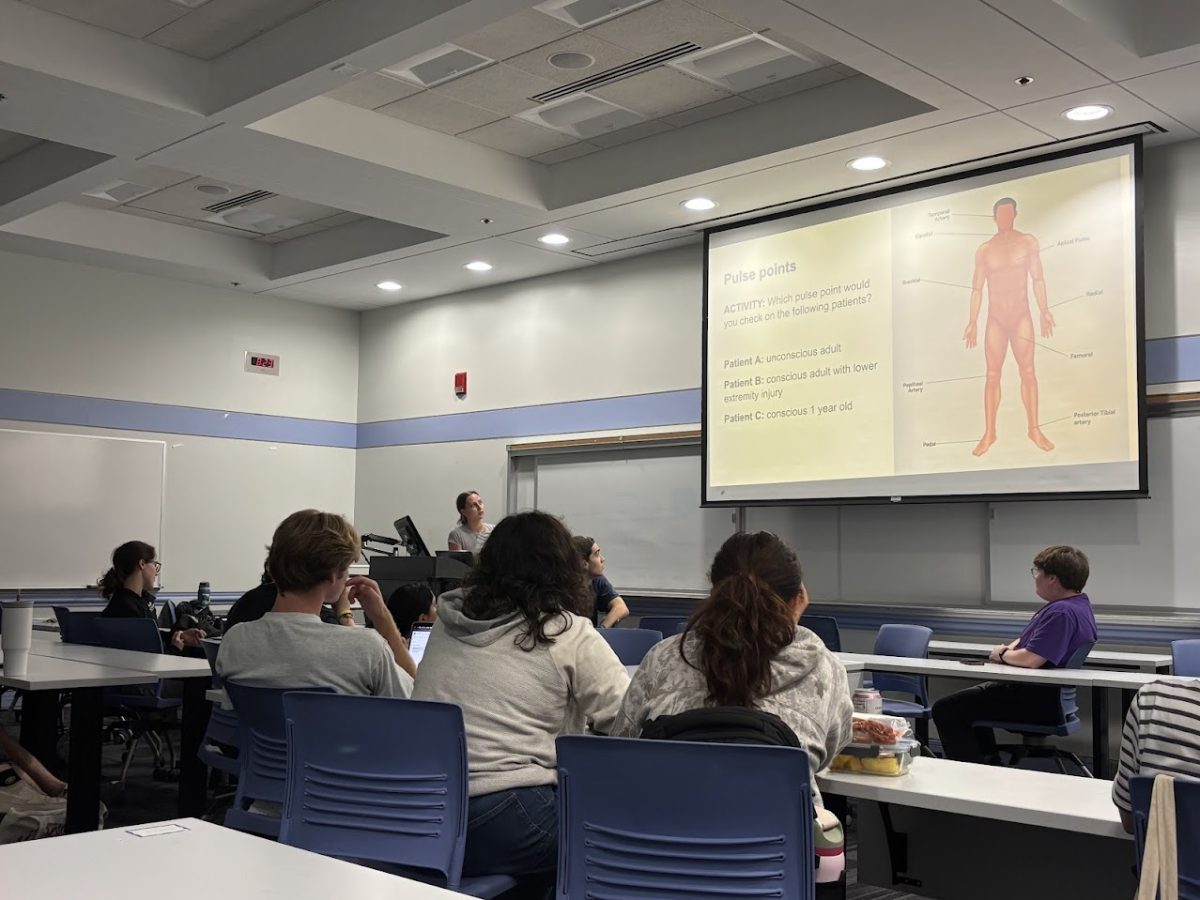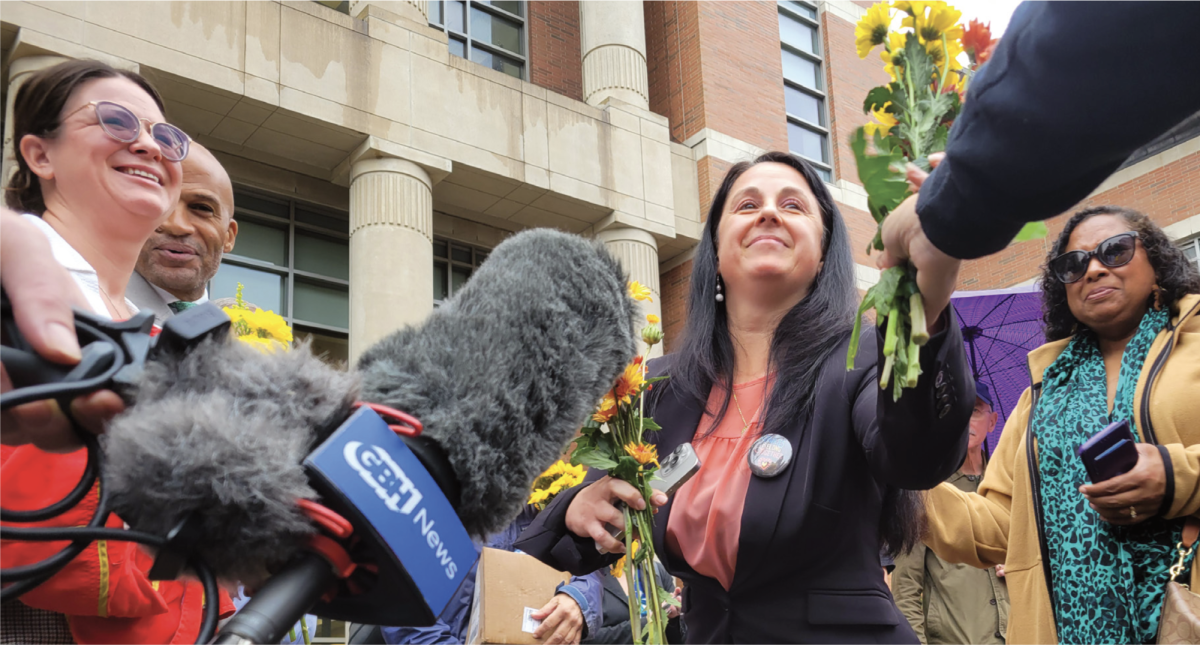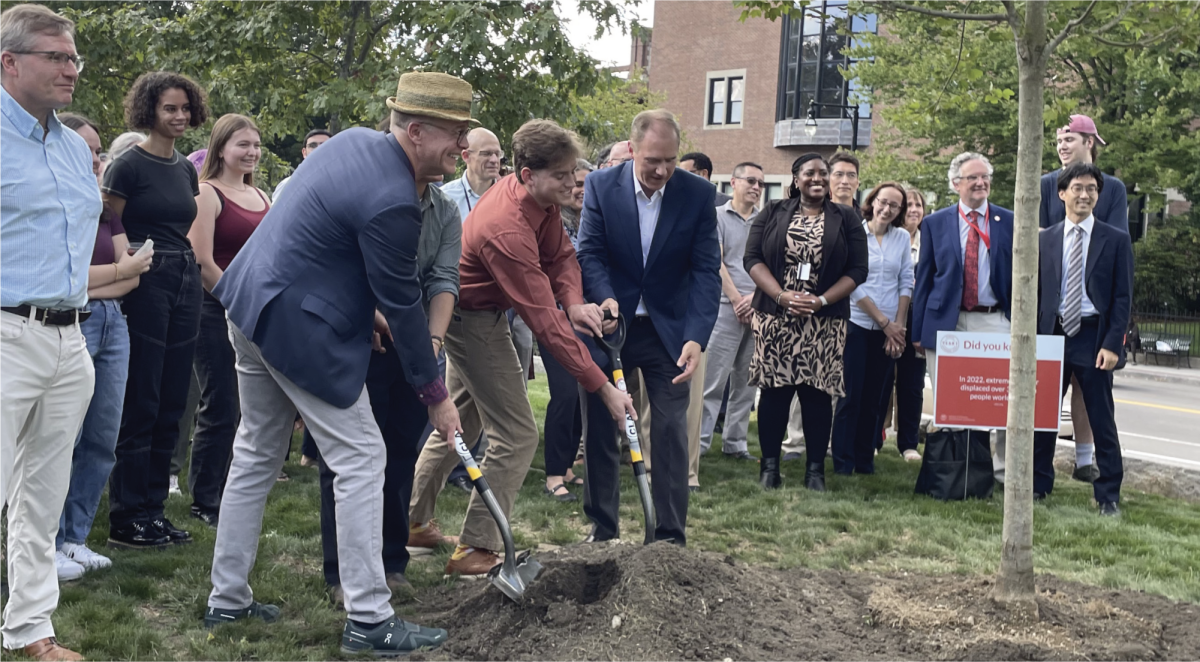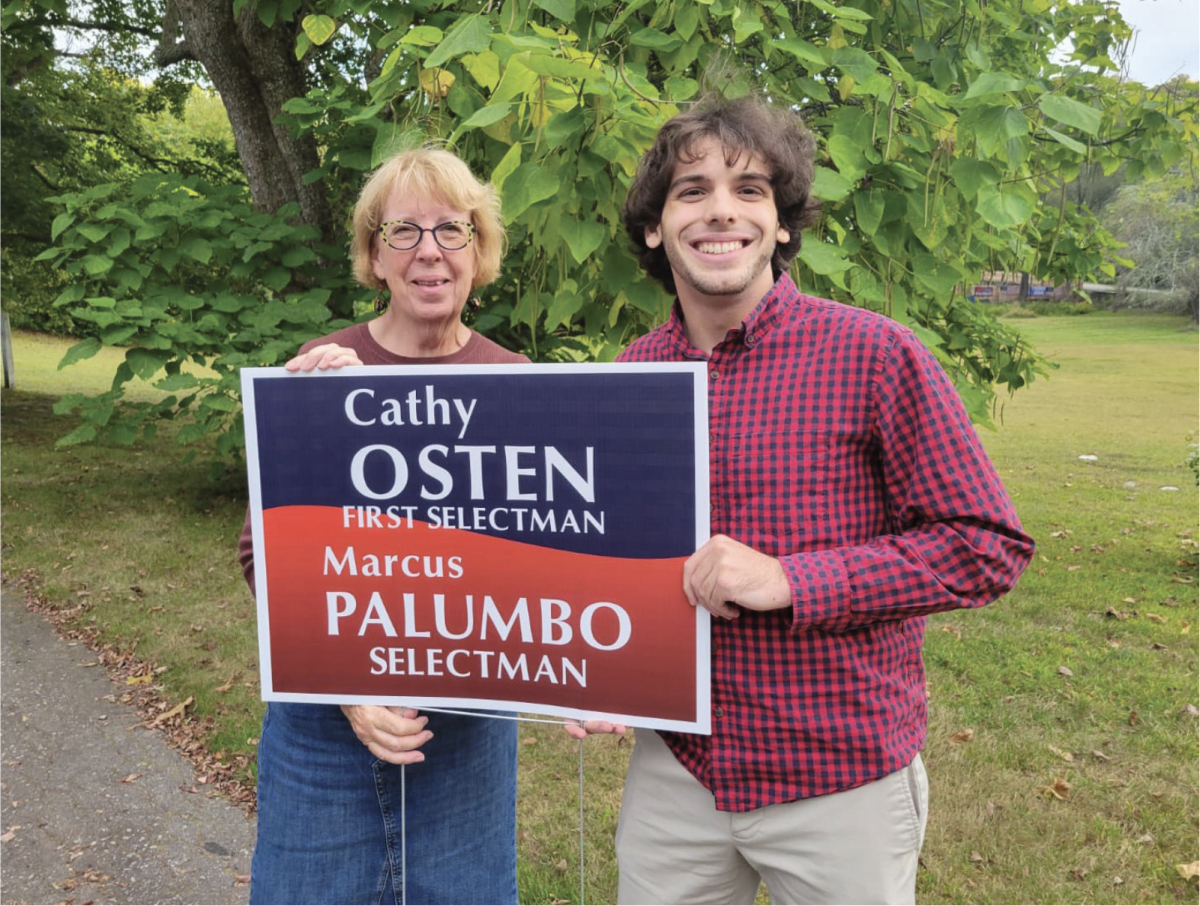The 2024 election was decisive, with the dust clearing quickly to reveal who most Americans had chosen as their next president: Donald Trump, who was re-elected with a strong national mandate this Tuesday. At a packed panel in Dana Commons the following evening, the mood was somber as professors and students wrestled with the results.
“I’m scared for the future of our country,” said Duncan Green ’25 after the event. “It’s terrible. But we’ve got to keep fighting,” he told The Scarlet.
The panel – entitled, “What Just Happened?” – was sponsored by the Alice Coonley Higgins Institute for Arts and Humanities, among other departments, and moderated by Professor Asha Best. It featured Professors Robert Boatright, Jack Delehanty, Cyril Ghosh, Ousmane Power-Greene and Johanna Vollhardt.
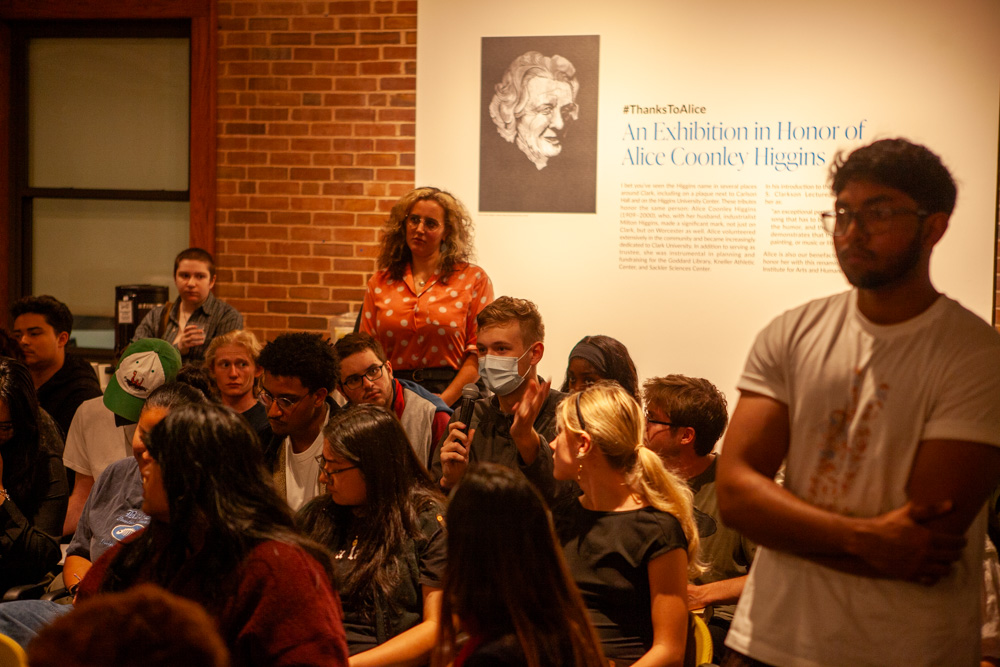
“I wouldn’t say I was shocked, but I would say I was… quite jarred,” said Professor Best of Trump’s election in her opening comments. She then turned to the panelists, who spoke for about an hour. The panelists fielded questions from the audience afterwards.
“I think a lot of people are feeling really scared, just based on the questions that [were] asked,” said Daniel Kelly ’25.
In their questions, many students expressed uncertainty and fear about what a second Trump presidency will bring. Some, including Kelly, hoped to hear more from the panelists about what it will mean for the health and safety of women and transgender people. Another attendee challenged the panel to convince him that Kamala Harris had not lost because of her identity as a woman.
Siobhan Davis, a senior, told The Scarlet that when they woke up this morning, they were in shock. “Now, I just feel a little numb,” they said.
The faculty panelists offered diverse takeaways on the election, though most fundamentally agreed that the results represented a watershed moment for American politics and culture.
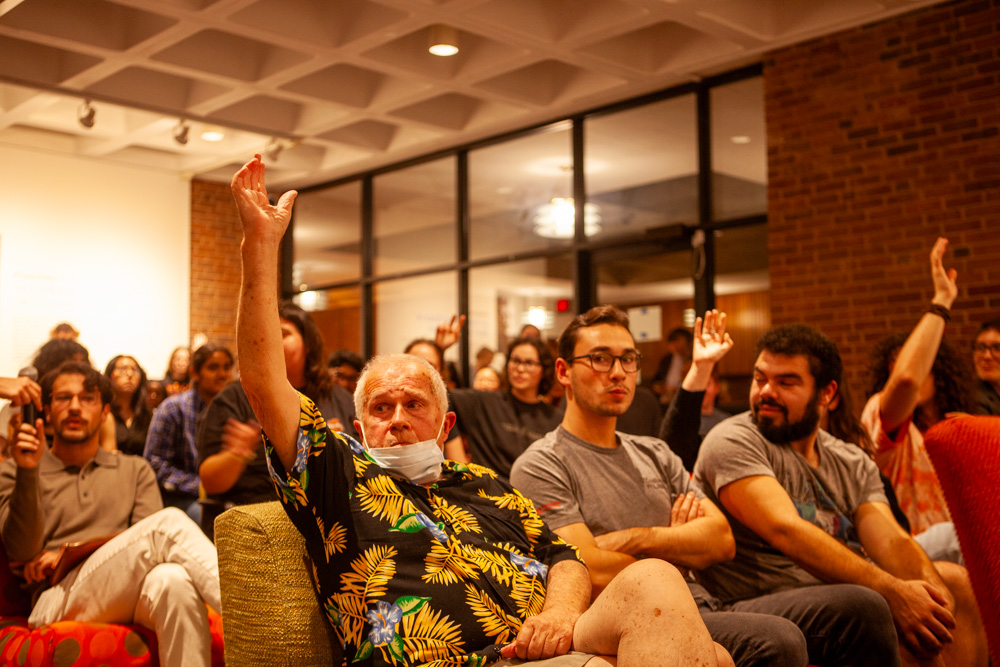
Political Science Professor Robert Boatright gave a balanced outlook, seeking to inspire some hope. He said that voter turnout was shaping up to be at its highest ever, made possible by the new normality of early voting. Boatright believes that’s something to celebrate, along with the fact that Harris “ran the best campaign she could have.” He conceded that the story Democrats told to voters clearly failed to resonate.
“People on the left of mainstream Democrats are maybe saying, ‘See? We told you so,’” said Johanna Vollhardt, Associate Professor of Psychology. Vollhardt said Democrats failed to listen to voters’ concerns about the war in Gaza, and made a mistake by appealing to conservatives and their ideas. “There is, I think, a very strong sense on the left that Democrats simply betrayed their values,” she said.
Prof. Ousmane Power-Greene, a member of the History Department, said that for Americans who saw this election first and foremost as a chance to elect a woman of color, the result was devastating. Those voters were motivated by the “possibility of telling a new story about America,” he said, and didn’t necessarily prioritize the economy.
Several panelists discussed the tribalistic nature of American politics. “It’s like British soccer,” said Cyril Ghosh, Associate Professor of Political Science. “I think one team is the intellectual elite, and the other team despises them.” The latter was vindicated by Trump’s victory, he said.
Power-Greene agreed, saying the ‘us versus them’ dynamic carried Trump to victory. That was partly because Republicans successfully brought many more voters into their anti-elite identity group, he said.
Professor Jack Delehanty, a sociologist, suspected that the new media landscape – which leaves “voids” filled by people like Joe Rogan, he said – has radically changed how people attach to groups and develop identity. Delehanty added that the coalition that elected Trump was “surprisingly diverse,” with new key groups being Hispanic men and young people – and billionaires.
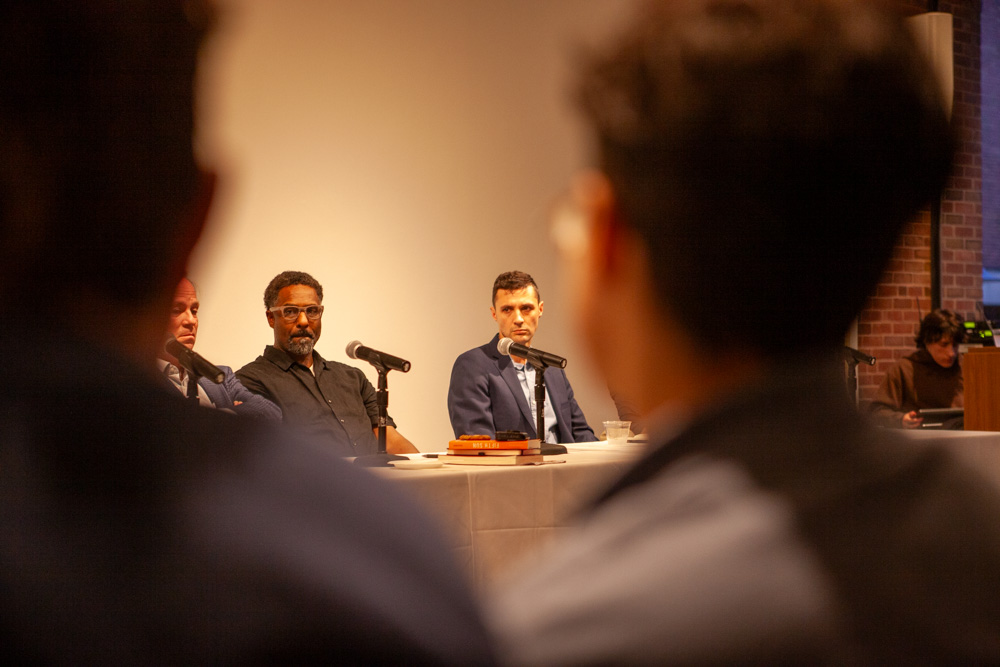
Ultimately, Boatright said, the sweeping support for Trump was more of a “statement on the economy” than it was an endorsement of Trump himself. Several students raised concerns about what Trump’s trade initiatives could mean for the economy, and how he would impact foreign affairs.
The panelists generally agreed that Democrats missed important messages from voters: deep anxiety over the economy and immigration, leading to a firm rejection of the progressive worldview.
Trump’s return left Clarkies with more questions than answers. Looking forward, Prof. Ghosh stressed open-mindedness, while Prof. Delehanty said it was helpful to consider the role local communities will play in deciding whether or not to go along with some of Trump’s proposed measures, like mass deportations. “To a certain degree, the consent of the governed still matters,” he said.

